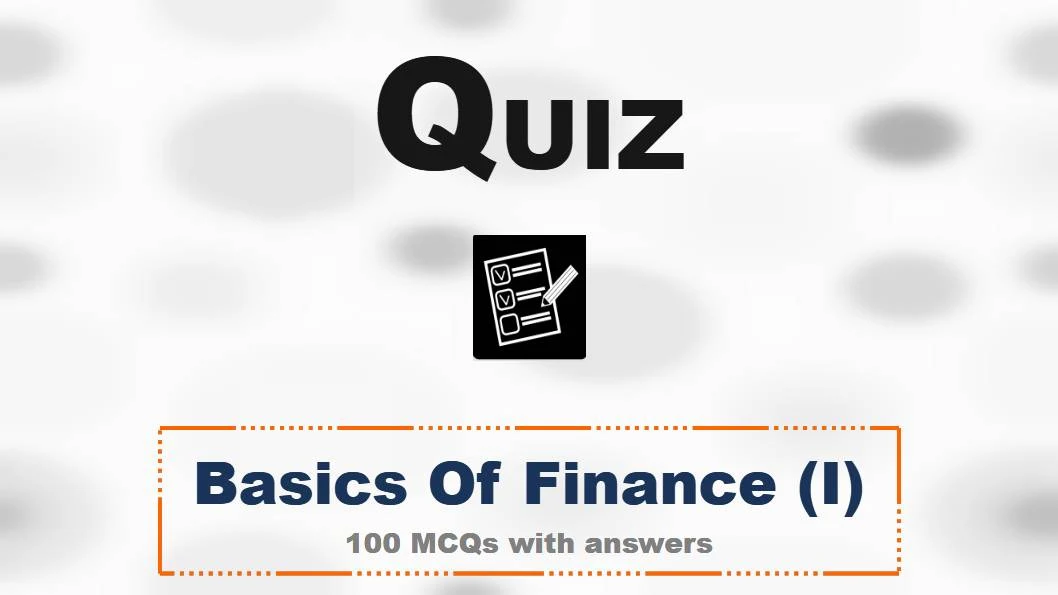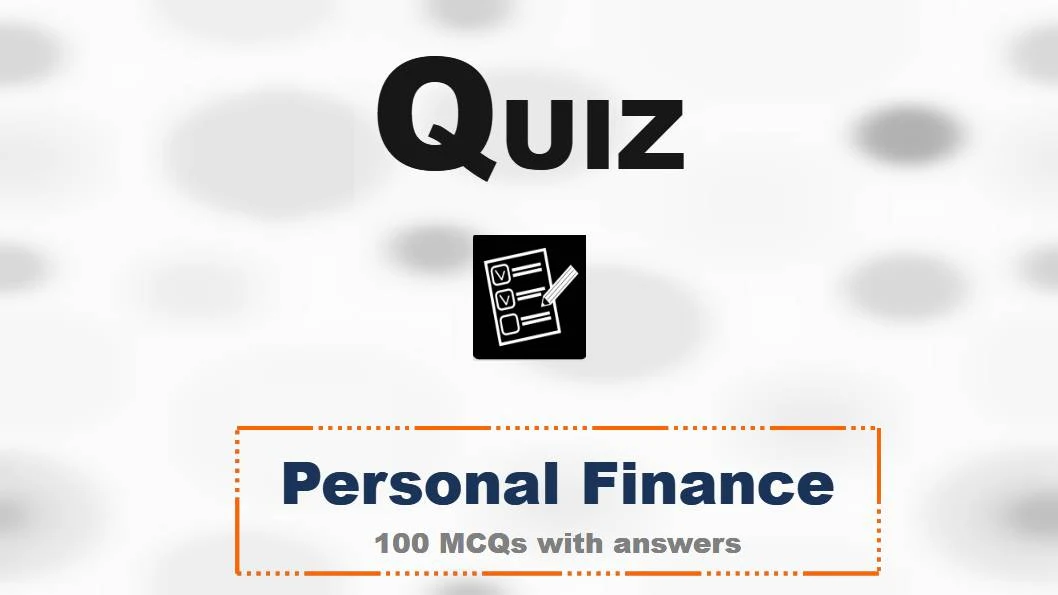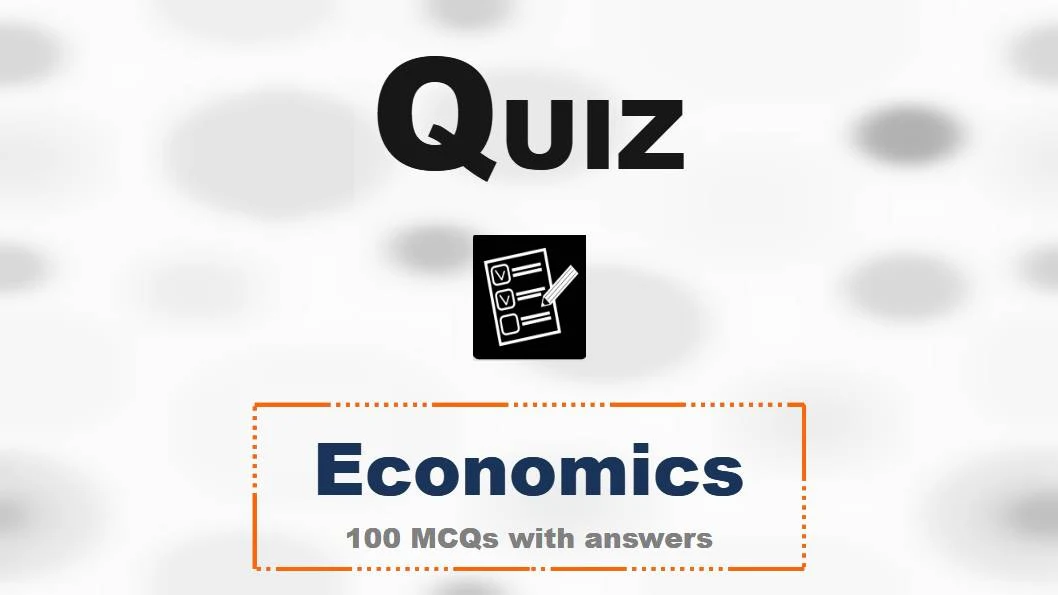- What is a student loan?
A loan taken by a student to pay for their education.
A scholarship provided to students to pay for their education.
A loan taken by parents to pay for their child's education.
- Which entity typically issues student loans in the United States?
Private banks and financial institutions
The federal government
Both
- What is the difference between a subsidized and an unsubsidized student loan?
Subsidized loans have lower interest rates than unsubsidized loans.
Subsidized loans are only available to graduate students.
The government pays the interest on subsidized loans while the student is in school, but not on unsubsidized loans.
- What is the maximum amount of federal student loan debt a student can borrow?
There is no maximum amount.
$50,000
$100,000
- Can student loans be used to pay for living expenses while in college?
Yes
No
Only if the student is living on campus.
- What is the Free Application for Federal Student Aid (FAFSA)?
An application to apply for federal student grants
An application to apply for both federal student loans and grants
An application to apply for federal student loans
- What is the difference between a fixed and variable interest rate on a student loan?
Variable interest rates stay the same over the life of the loan, while fixed rates can change.
Fixed interest rates stay the same over the life of the loan, while variable rates can change.
There is no difference between fixed and variable interest rates.
- What is loan deferment?
When the student loan payments are temporarily paused.
When the student loan is forgiven and does not have to be paid back.
When the student loan payments are reduced.
- What is loan consolidation?
When a student loan is reduced or forgiven.
When the interest rate on a student loan is lowered.
When multiple student loans are combined into one loan with one payment.
- What is the difference between a private and federal student loan?
Private loans have higher interest rates than federal loans.
Private loans are only available to students with good credit.
Federal loans have more flexible repayment options and forgiveness programs.
- How does a student qualify for a federal student loan?
They must be a U.S. citizen or eligible non-citizen.
They must be enrolled in an accredited college or university.
Both
- What is a cosigner on a student loan?
Someone who is responsible for paying the loan if the student cannot.
Someone who takes out the loan with the student.
Someone who helps the student fill out the loan application.
- How does a student loan impact a person's credit score?
It can either positively or negatively impact their credit score, depending on whether or not they make payments on time.
It has no impact on their credit score.
It always negatively impacts their credit score.
- Can a student loan be discharged in bankruptcy?
Yes, but only in certain circumstances.
No, student loans cannot be discharged in bankruptcy.
Yes, student loans can always be discharged in bankruptcy.
- What is loan forbearance?
When the student loan is forgiven and does not have to be paid back.
When the student loan payments are temporarily paused or reduced.
When the interest rate on a student loan is lowered.
- A sum of $1,000 is invested at a rate of 5% per annum compounded semi-annually for 3 years. What is the compound interest earned?
$162.89
$166.38
$160.38
- A sum of $8,000 is invested at a rate of 10% per annum compounded annually for 5 years. What is the compound interest earned?
$4,804.00
$4,613.36
$4,451.52
- What is the term for the frequency with which interest is compounded?
Time
Rate
Compounding period
- A sum of $12,000 is invested at a rate of 9% per annum compounded annually for 4 years. What is the total amount of money in the account at the end of 4 years?
$17,220
$19,440
$18,360
- A sum of $6,000 is invested at a rate of 3.5% per annum compounded quarterly for 1 year. What is the total amount of money in the account at the end of 1 year?
$6,250.00
$6,262.39
$6,236.74
- What is a budget?
A plan for managing your money.
A list of items you want to buy.
A record of all your expenses.
- What is the purpose of a budget?
To help you save money.
To help you achieve your financial goals.
To limit your spending.
- What is a zero-based budget?
A budget where you allocate all your income to specific categories.
A budget where you only spend money on essentials.
A budget where you spend all your money each month.
- What is the 50/30/20 budget rule?
A budget where you spend 50% of your income on housing, 30% on food, and 20% on transportation.
A budget where you spend 50% of your income on entertainment, 30% on travel, and 20% on shopping.
A budget where you spend 50% of your income on essentials, 30% on non-essentials, and 20% on savings.
- What is an emergency fund?
A credit card used for emergencies.
A savings account set aside for unexpected expenses.
A loan used to cover unexpected expenses.
- What is a sinking fund?
A savings account used to save for a specific future expense.
A savings account used to pay off debt.
A budget category used to track regular expenses.
- What is the envelope budgeting method?
A budgeting method where you only spend money on essentials.
A budgeting method where you use a spreadsheet to track your expenses.
A budgeting method where you put cash in envelopes for specific expenses.
- What is a budget variance?
The amount of money left over after you pay all your bills.
The difference between your budgeted and actual expenses.
The total amount of money you spend each month.
- What is a budget planner?
A tool used to help you create and manage your budget.
A person who manages your finances for you.
A financial advisor who helps you plan your budget.
- What is a fixed expense?
An expense that varies from month to month.
An expense that is only paid once a year.
An expense that stays the same from month to month.
- What is a variable expense?
An expense that stays the same from month to month.
An expense that varies from month to month.
An expense that is only paid once a year.
- What is the difference between a want and a need?
A want is something you must have to survive, and a need is something you would like to have.
A need is something you must have to survive, and a want is something you would like to have.
A need is something you want, and a want is something you need.
- What is the debt snowball method?
A method of paying off debt where you focus on paying off your highest interest debt first.
A method of paying off debt where you make only the minimum payments on all your debts.
A method of paying off debt where you focus on paying off your smallest debt first.
- What is the 30-day rule?
A rule that requires you to pay off your credit card balance in 30 days.
A rule that requires you to wait 30 days before making a purchase.
A rule that requires you to save 30% of your income each month.
- What is a financial goal?
A goal to save a certain amount of money.
A goal to spend more money on non-essentials.
A goal to spend all your money each month.
- What is income?
Money received from investments.
Money earned from working.
Both
- What is earned income?
Income from working for someone else or owning a business.
Income from investments.
Income from government benefits.
- What is unearned income?
Income from investments.
Income from working for someone else or owning a business.
Income from government benefits.
- What is gross income?
Income after taxes and other deductions.
Income before taxes and other deductions.
Income from investments.
- What is net income?
Income before taxes and other deductions.
Income after taxes and other deductions.
Income from investments.
- What is a salary?
Income earned from working a set number of hours per week or month.
Income earned based on the amount of work completed.
Income earned from investments.
- What is a wage?
Income earned based on the amount of work completed.
Income earned from working a set number of hours per week or month.
Income earned from investments.
- What is commission income?
Income earned from working a set number of hours per week or month.
Income earned from investments.
Income earned based on the amount of work completed.
- What is a bonus?
Extra income received for meeting or exceeding performance goals.
Income earned based on the amount of work completed.
Income earned from investments.
- What is passive income?
Income earned from working for someone else or owning a business.
Income earned from government benefits.
Income earned from investments.
- What is capital gains income?
Income earned from government benefits.
Income earned from selling assets at a profit.
Income earned from working for someone else or owning a business.
- What is rental income?
Income earned from working for someone else or owning a business.
Income earned from renting out property.
Income earned from government benefits.
- What is dividend income?
Income earned from working for someone else or owning a business.
Income earned from government benefits.
Income earned from investments in stocks or mutual funds.
- What is capital losses?
The loss incurred when working for someone else or owning a business.
The loss incurred when receiving government benefits.
The loss incurred when selling assets at a lower price than they were purchased for.
- What is interest income?
Income earned from working for someone else or owning a business.
Income earned from investments in bonds or savings accounts.
Income earned from government benefits.
- What is the purpose of insurance?
To protect against financial losses
To earn a profit for the insurance company
To guarantee investment returns
- What is the most common type of insurance?
Health insurance
Life insurance
Auto insurance
- What is a premium?
The amount an insured person pays for insurance coverage
The amount an insurance company pays for a claim
The amount an insurance agent earns in commissions
- Which of the following is not a factor that determines insurance premiums?
Gender
Education level
Age
- What is a deductible?
The maximum amount of coverage an insurance policy provides
The amount an insurance company pays for a claim
The amount an insured person pays out of pocket before insurance coverage kicks in
- What is liability insurance?
Insurance that covers damage to other people's property
Insurance that covers medical expenses for yourself
Insurance that covers damage to your own property
- What is comprehensive insurance?
Insurance that covers medical expenses for yourself
Insurance that covers damage to other people's property
Insurance that covers damage from natural disasters or theft
- Which of the following is not a type of life insurance?
Variable life insurance
Term life insurance
Comprehensive life insurance
- What is a beneficiary?
The person who receives life insurance proceeds after the insured person dies
The insurance agent who sells the policy
The person who purchases the insurance policy
- What is disability insurance?
Insurance that provides income if you are unable to work due to illness or injury
Insurance that covers medical expenses for yourself
Insurance that covers damage to other people's property
- What is long-term care insurance?
Insurance that covers damage to other people's property
Insurance that covers medical expenses for yourself
Insurance that covers the costs of long-term care services, such as nursing homes or home health care
- What is travel insurance?
Insurance that covers damage to other people's property while traveling
Insurance that covers medical expenses while traveling
Both
- What is underwriting?
The process of filing an insurance claim
The process of evaluating and pricing insurance policies
The process of canceling an insurance policy
- What is a claims adjuster?
An employee of an insurance company who investigates and evaluates insurance claims
An attorney who represents insurance companies in legal proceedings
An independent contractor who evaluates insurance claims for multiple insurance companies
- What is an insurance rider?
A person who is insured under an insurance policy
An insurance policy that covers multiple people
An amendment or addition to an insurance policy
- What is entrepreneurship?
Investing in the stock market
Working as an employee in a company
Starting and running a business
- What is a business plan?
A document outlining the goals and strategies of a business
A legal agreement between business partners
A marketing campaign for a new product
- Which of the following traits is commonly associated with successful entrepreneurs?
Perseverance
Risk-aversion
Resistance to change
- What is market research?
Developing a pricing strategy
Analyzing consumer behavior and market trends
The process of identifying potential competitors
- What is a unique selling proposition (USP)?
The financial forecast for a new venture
The legal protection of a business idea
A distinctive feature that sets a product or business apart from competitors
- What does ROI stand for in the context of entrepreneurship?
Return on Investment
Rate of Innovation
Revenue Overhead Index
- What is bootstrapping in entrepreneurship?
Starting a business with minimal external funding or resources
Setting high prices for products or services
Hiring employees without proper qualifications
- What is a business model?
The organizational structure of a company
The way a company generates revenue and delivers value to customers
A plan for expanding a business globally
- What is scalability in entrepreneurship?
The process of outsourcing tasks to external contractors
The potential for a business to grow and handle increased demand
The ability of a business to adapt to changing market conditions
- What is a target market?
The specific demographic group a business aims to serve
The total number of customers in a given industry
The competition in a particular market segment
- What is a business incubator?
A government agency that provides financial support to startups
A legal entity that protects entrepreneurs from liabilities
A program that offers resources and support to help startups grow
- What is the importance of networking in entrepreneurship?
It provides opportunities for collaboration and partnerships
It allows entrepreneurs to promote their products or services
It helps entrepreneurs secure venture capital funding
- What is the difference between a product and a service in entrepreneurship?
A product is physical, while a service is virtual
A product is tangible, while a service is intangible
A product is sold to businesses, while a service is sold to consumers
- What is an exit strategy in entrepreneurship?
The plan for closing down a business and liquidating its assets
The process of selling a business to another company or individual
The strategy for expanding a business into international markets
- What is a lean startup?
A startup that focuses on sustainable and environmentally friendly practices
A startup with a minimal budget for marketing and advertising
A startup that uses a systematic and iterative approach to product development
- What is credit?
Borrowed money to be repaid later
A measure of a person's debt
A measure of a person's income
- What is a credit score?
A numerical representation of a person's creditworthiness
The amount of debt a person has
The interest rate on a credit card
- Which organization calculates the FICO credit score?
Internal Revenue Service
Federal Trade Commission
Fair Isaac Corporation
- What is the highest possible FICO credit score?
500
850
750
- What is a good credit utilization ratio?
10%
50%
30%
- What factors affect your credit score?
Payment history and credit utilization
Income and employment history
Social media activity
- Which of the following is NOT a credit bureau?
Federal Reserve
TransUnion
Experian
- How long does negative information generally stay on your credit report?
1 year
7 years
3 years
- Which of the following is considered a good credit score?
450
600
750
- What does a secured credit card require?
A co-signer
Collateral or a deposit
A high credit score
- What is the purpose of a grace period on a credit card?
To earn rewards points
To avoid interest charges on purchases
To extend the due date for payments
- What is a hard inquiry on a credit report?
A request for a credit limit increase
A request for a credit score review
A request for credit by a lender
- Which of the following actions can negatively impact your credit score?
Keeping credit card balances low
Opening a new credit account
Paying bills on time
- What is the purpose of a credit freeze?
To prevent unauthorized access to your credit report
To increase your credit limit temporarily
To reduce interest rates on existing loans
- How often are you entitled to a free copy of your credit report from each credit bureau?
Twice a year
Every six months
Once a year
- What is the term used for the process of gradually shifting investments from higher-risk assets to lower-risk assets as retirement approaches?
Dollar-cost averaging
Diversification
Asset allocation
- What is the general rule of thumb regarding the percentage of your final salary that you should aim to replace with retirement income?
90-100%
70-80%
50-60%
- What is the term used for the practice of setting aside a certain percentage of your income for retirement savings before allocating funds to other expenses?
Delayed gratification
Automatic enrollment
Pay yourself first
- Which of the following statements about Social Security retirement benefits is true?
Benefits can be claimed as early as age 62
The benefit amount is the same for everyone
Benefits are only available to low-income individuals
- What is the term used for the strategy of gradually reducing work hours or transitioning to part-time work before fully retiring?
Delayed retirement
Phased retirement
Early retirement







